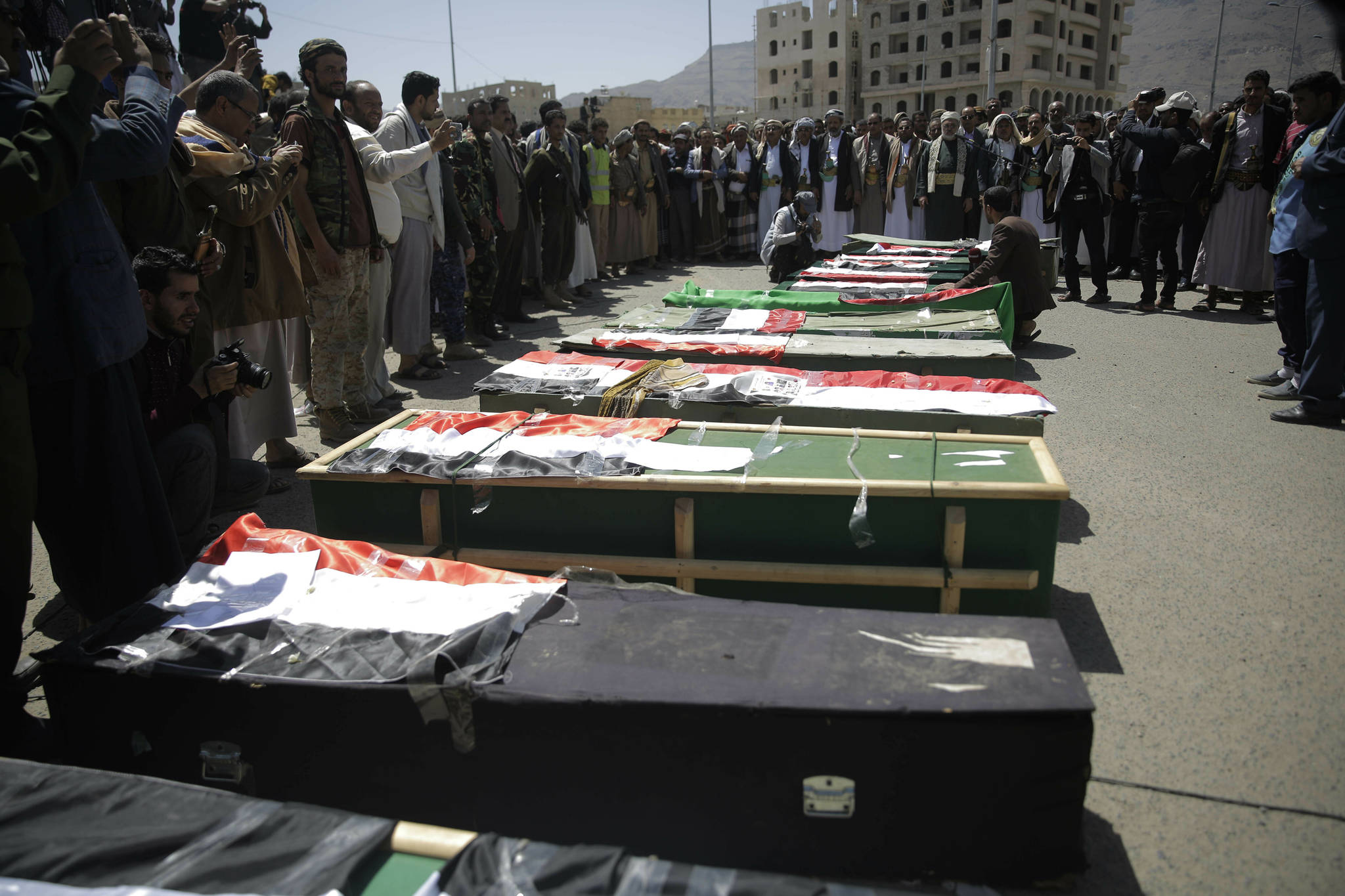The Yemeni Civil War has created the world’s worst humanitarian crisis, displacing an estimated 3.3 million people and killing or injuring tens of thousands of people, including at least 17,700 civilians. An estimated 80 percent of the Yemeni population — 24 million people — need humanitarian or protections assistance.
The U.S. is helping to make it worse.
President Donald Trump issued the second veto of his presidency on April 16, vetoing Senate Joint Resolution 7 from Congress to stop U.S. involvement in the Yemeni war, claiming the resolution is unnecessary because “there are no United States military personnel in Yemen commanding, participating in or accompanying military forces of the Saudi‑led coalition against the Houthis in hostilities in or affecting Yemen.”
He conveniently leaves out independent U.S. military operations.
[Opinion: Should we trust the Boeing 737 MAX 9 aircraft?]
In his December 2018 letter to Congress, he wrote that U.S. military personnel are in Yemen conducting military operations, presumably not as part of the Saudi-led coalition, but supporting them. That is in addition to at least 334 U.S. drone strikes in Yemen since 2009 and an unknown number of military ground incursions by special operations teams. Also, the U.S. Navy has assistance in blockading Yemeni ports, preventing humanitarian aid from entering the country.
If the U.S. is providing logistical and intelligence support to the Saudi coalition, deploying troops on the Saudi border with Yemen, conducting military operations within Yemen, and assisting in the enforcement of the naval blockade, we are party to the conflict and engaged in hostilities under the War Powers Act.
Congress has the authority to end our involvement. The constitution says the president is commander in chief of the armed forces, but it gives Congress the power to declare and fund war.
[Opinion: Doing nuclear energy right requires global paradigm shift]
The White House claims that U.S. involvement is so meager that it doesn’t amount to war hostilities, but also claims our involvement is vitally important that it must not be ended. If our role is as small as the White House claims, there should be no danger in ending it. If it is as significant as they claim at other times, then it is correct for Congress to shut it down because Congress never authorized our involvement in the war.
Trump’s veto is the action of a wannabe king prioritizing weapon sales over alleviating the world’s worst humanitarian crisis. What does that tell the rest of the world?
It tells the world that we are an active participant in genocide. It tells the world that we are more interested in money than people. It tells the world that we will turn a blind eye to the worst humanitarian crisis in the world today if an American company can make a buck perpetuating it.
That is not what we should be telling the world. We should be telling our senators and representative to override Trump’s veto.
• Craig Wilson lives in Juneau. My Turns and Letters to the Editor represent the view of the author, not the view of the Juneau Empire.

